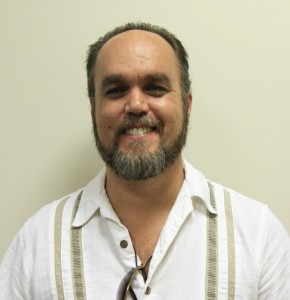 October is National Youth Justice Awareness Month (Y – Jam). Events in more than 20 states and Washington, D.C., many coordinated by Campaign for Youth Justice, are meant to highlight the plight of youth prosecuted as adults, and to raise awareness and the political will to bring about changes in the laws that permit this practice.
October is National Youth Justice Awareness Month (Y – Jam). Events in more than 20 states and Washington, D.C., many coordinated by Campaign for Youth Justice, are meant to highlight the plight of youth prosecuted as adults, and to raise awareness and the political will to bring about changes in the laws that permit this practice.
In many ways the situation for kids involved in crime is improving. Recent decisions by the U.S. Supreme Court have outlawed the death penalty for juveniles and limited the situations when juveniles can be sentenced to life without parole. Overall there is a willingness to explore alternatives to incarceration, and the traditional split between juvenile and adult offenders has been reinforced.
All of this is great, but this week, at the beginning of Y – JAM, I am pondering the case of 13-year-old Cristian Fernandez, and wondering what his life will look like in 20 years. Cristian is accused of killing his two-year-old brother in 2011, as well as sexually molesting his five-year-old half-brother. The case, as pointed out in the New York Daily News, is one of the most complex in Florida history, and is raising strong emotions in both those who oppose juvenile life sentences and those who support them.
Fernandez’s crimes make him an unsympathetic poster child for those in favor of rehabilitative measures, and who insist that since there is a fundamental difference in children and adults they should be treated differently. To those in favor of the sentences, it is clear that the heinous nature of the boy’s crimes makes him a danger that must be contained.
Younger kids seldom kill. According to the Justice Department, 29 kids younger than 14 committed homicides in 2010. Usually, these are kids who have serious dysfunction in their lives. Cristian’s life, for instance, reads like a horror story.
Fernandez’s mother was 12 when he was born. His father, 25, was convicted of sexual assault against the girl. At age two Cristian and his mother were placed in foster care after the boy was discovered by police walking naked down a street in the pre-dawn hours. His grandmother was in a nearby hotel doing drugs. A few years later, when he was 8, an older cousin reportedly molested Cristian. Numerous reports by school officials and others refer to the boy’s inappropriate and disturbing behavior in class, including masturbation, sexual touching, and killing a kitten. In 2010 he was sent to the hospital from school with a serious eye injury, which he claimed was inflicted by his stepfather. When police went to investigate they found that the man had committed suicide.
What does it say about human beings, and about our nation, that this series of events was allowed to unfold? As a society we condemn each of these actions, in which Cristian was both victim and offender, but somehow insufficient support was found for this boy, his mother, and his siblings.
The amount of damage that this boy has suffered and caused is staggering, and now he is to be tried as an adult, the youngest prisoner in Duvall County, Florida. Perhaps he is bound to receive a life sentence for his crimes. Whether or not he will receive the treatment, the sheer care that he needs, is more problematic.
So, I don’t have the answers to this situation. Some way must be found that meets the needs for safety that society rightly demands, while at the same time giving Cristian the mercy that he so deserves and has yet to know in his short, horrible life. This is what I am pondering during National Youth Justice Awareness Month.

I’ll adopt Cristian today!